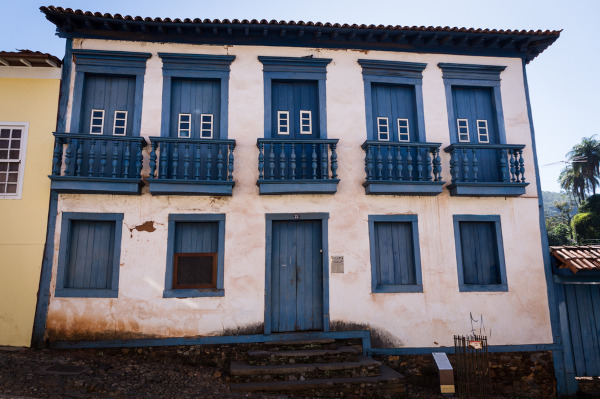It is an indisputable fact that the coming of the Portuguese Royal Family for Brazil, at the turn of 1807 to 1808, it marked the country's history, given that our nation ceased to be a colony of Portugal to become, together with the Iberian country and the Algarves, a United Kingdom. However, generally the school contents about this period focus on the political transformations conducted by Dom João VI in Brazil and not they focus on other points, such as: how the intimate relations of the royal family could interfere in the political destiny of both Brazil and Portugal?
Dom Pedro I, the person directly responsible for our Independence, it was the result of the royal couple D. John VI and D. Carlota Joaquina. The first, heir to the dynasty of the Bragança of Portugal and son of the queen Mary I, the Madwoman. The second, a member of the dynasty of the Bourbon, from Spain, and daughter of the king Charles IV. The union of the two houses through the marriage of the two was sealed in 1765, when the groom was 18 years old and the bride was only 10. The marriage took place just five years later and, as historian Otávio Tarquínio de Sousa points out, in his biography of Dom Pedro I, the couple
“I was doomed to disagreement, to misunderstanding, to struggle sometimes furtive and disloyal, sometimes frank and open. This Portuguese and this Spanish woman were hardly alike. Both physically ugly, both without any superior moral quality, both underhanded, it's true.” [1].The couple's unfortunate fate seemed to be traced from the physical combination, which, among historians, has yielded very comical narratives, such as those by Otávio Tarquinio de Sousa, both about the king and the queen, how can it be seen below:
“[…] Dom João lacked any of the attributes or characteristics that can make a man dear or admired by women, especially the nature of the one that was his. No virile beauty, courage, decision, daring, ability to command. Bragança, son of a niece and uncle, was clumsy, thick, puffy, paunchy, soft, without a habit of cleanliness, not to mention dirty, careless in dress, and fearful, timid, perplexed, sly, finding out in the morning what waned in authority, disguising the congenital in patience irresolution."[2]
Already from Carlota says Sousa:
[…] Bourbon, whom diplomatic negotiations and dynasty arrangements gave him [Dom João VI] as a partner, was almost hideous, bony, with a shoulder markedly higher than the other, with small eyes, a thick skin that the bladder marks made even rougher, a nose reddish. And small, by a dwarf, limp. In this withered body an ardent, ambitious, restless soul, streaked with passions, a demanding nature, with the impulses of sex reckless, without scruples, affirmative when possible, calm by calculation, tenacious, eager to command, courageous, able to face the adversity.[3]
Do not stop now... There's more after the advertising ;)
As can be seen, the relationship between Carlota Joaquina and Dom João VI was one of the most controversial and fraught with tensions in the history of Portugal. Sly and politically ambitious – given that, in addition to being queen of Portugal, she was also a possible regent or even queen of Spain –, D. From a very early age, Carlota began to weave intrigues against her husband's power grids in her own favor, initially, and then in favor of her youngest son, D. Miguel, urging him to carry out a coup d'état against his own father in the mid-1820s. On his part, D. João also tried to dodge by means of ruses against his wife's advances, articulating all sorts of political negotiations, both internal and external to Portugal.
When they were in Brazil, D. João sought to strategically combat Napoleonic maneuvers, attacking points such as French Guiana, on the border with the then province of Grão-Pará. On the other hand, D. Carlota, upon learning of the rupture of political ties between Napoleon and his father, Carlos IV, and of his arrest of his brother and heir to the Spanish throne, he immediately began to invest, with the help of the British admiral sydneySmith (who many believe to have been her lover), in the approval of her person, before the Spanish colonies in America, as queen of the Spanish throne – a project that did not work out.
These and many adventures of the Portuguese royal couple give us the dimension of how particular details can greatly affect the progress of the story as a whole.
GRADES
[1] SOUSA, Otávio Tarquínio de. “The life of D. Pedro I” (volume 1st). In: History of the founders of the Empire of Brazil (vol. II). Brasília: Federal Senate/Editorial Council, 2015. P. 17.
[2]Idem. P. 17-18
[3]Ibid. P. 18.
By Me. Cláudio Fernandes



